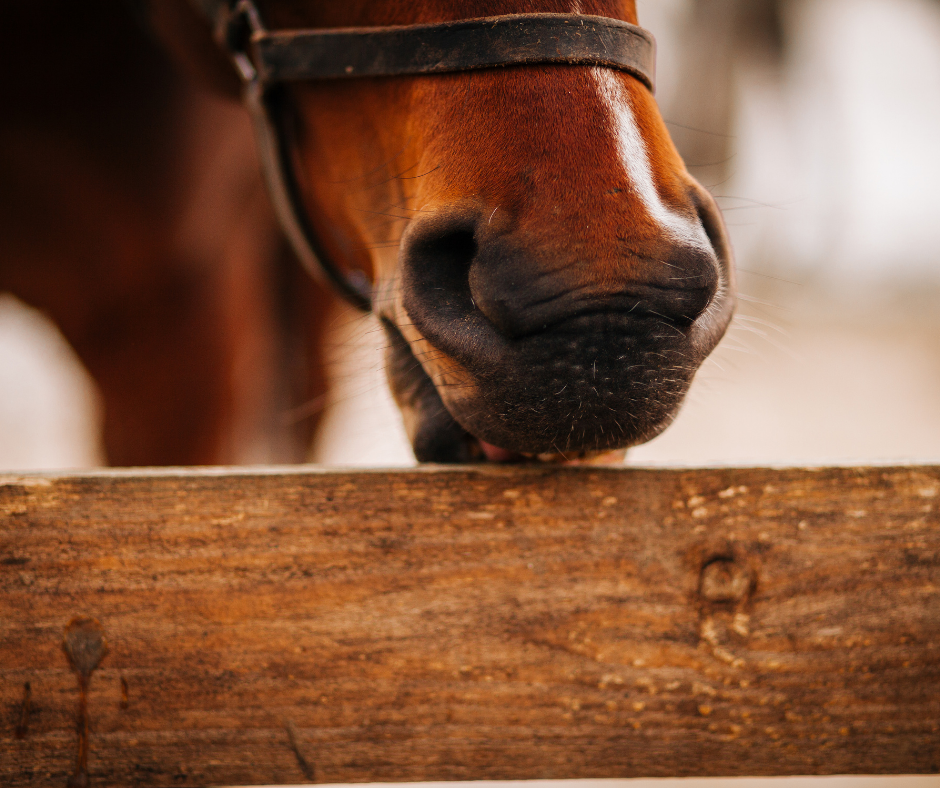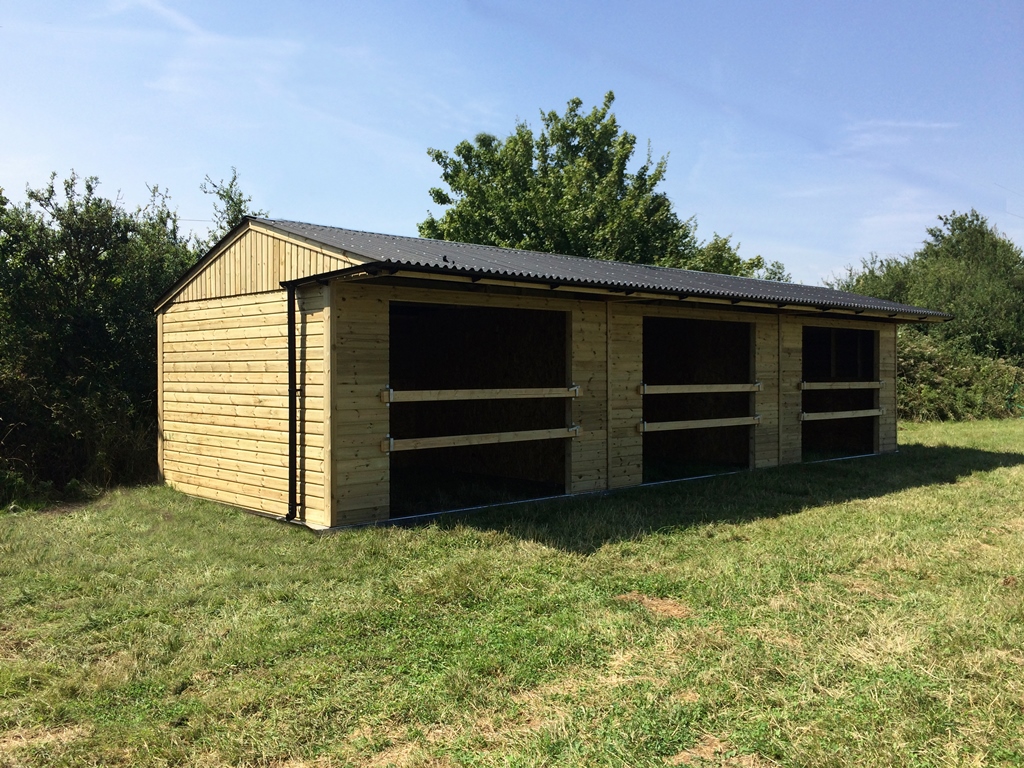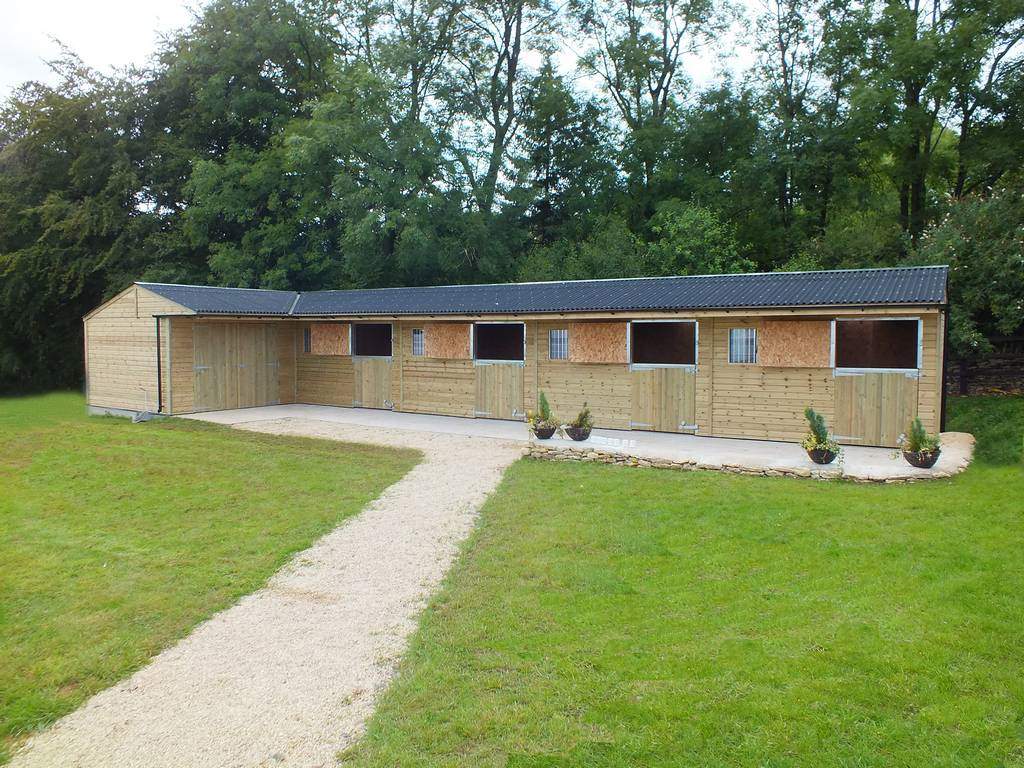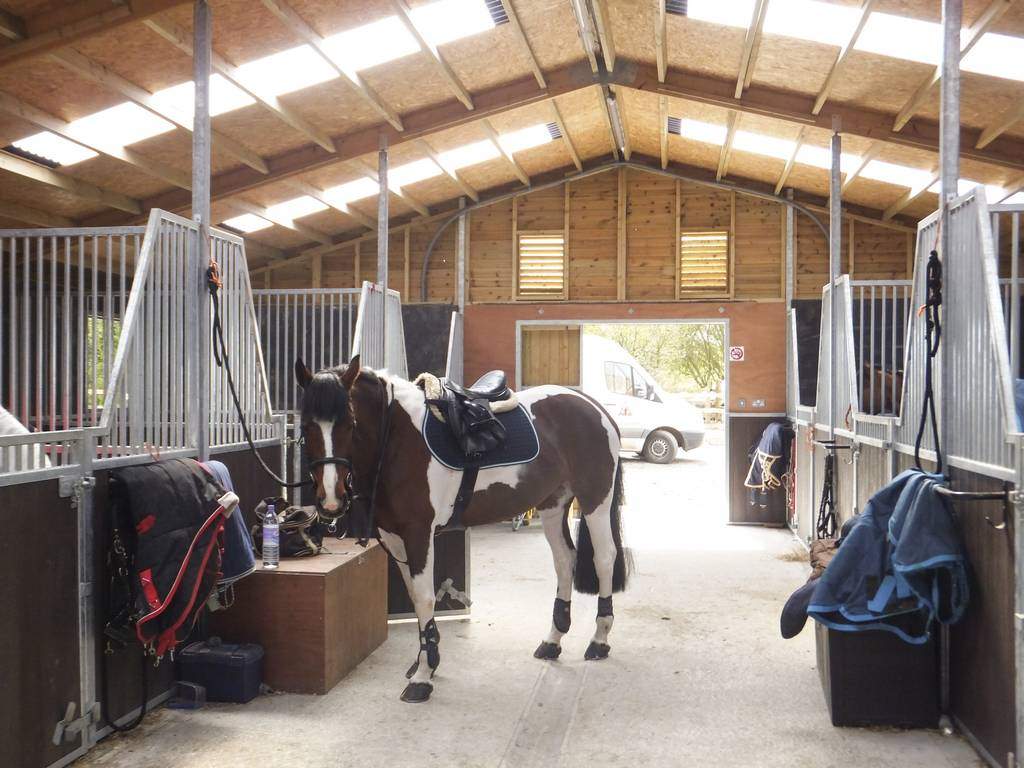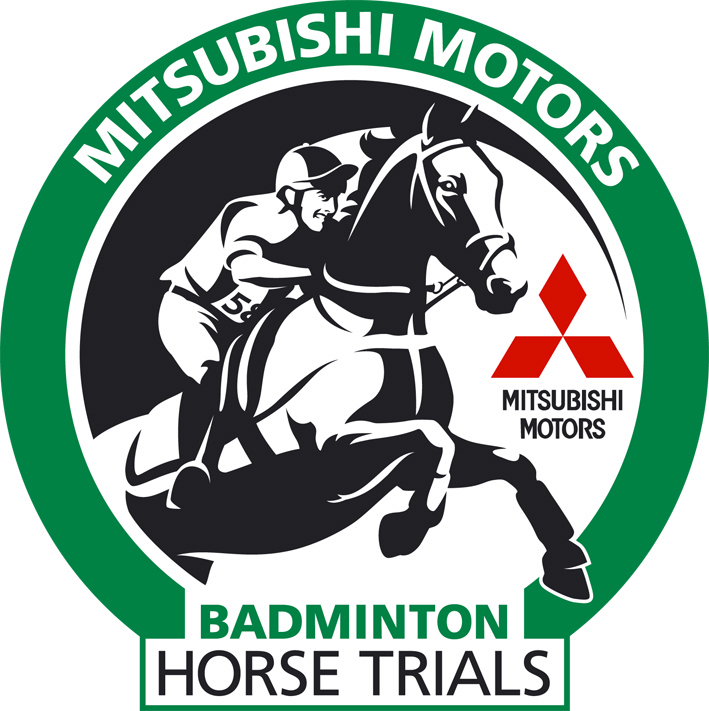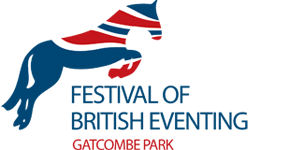Horses are highly social and intelligent animals who love the outdoors and large areas. When confined for an extended time, they may develop unwanted habits such as chewing and gnawing wood when stabled.
This habit doesn’t only damage your stables. If ignored, your horses can develop health problems such as weight loss, nutrient deficiencies, dental problems, and even increase the risk of colic and stomach ulcers.
If you notice any signs of gnawing damage to your stables or fencing, we strongly advise you not to ignore them. Try some of our simple strategies below to lessen the unsought habits.
What causes horses to chew on stable frames?
Before we begin exploring ways to stop horses from chewing, it’s important to understand why they may be doing it. Only then you will be able to identify effective strategies that will lessen such habits.
There are several reasons why your horses may form a habit of chewing. This habit is more common among horses that are kept indoors more often than others. Nevertheless, some of the most common causes are boredom and frustration, stress, nutritional deficiencies, lack of social interaction, and possibly genetics.
It is also important to note that wood chewing is different from cribbing. Cribbing or windsucking is a compulsive, repetitive behaviour in horses that are bored or stressed. Once the behaviour is formed, it can be hard to control and in some cases, incurable. The action of cribbing can be described as a horse grabbing a horizontal object such as fence rails with its upper incisors and pulling against the object with an arched neck.
On the other hand, wood chewing is when horses gnaw wood fences, stable doors, and other wooden parts and can be equally damaging to the facilities and horses’ wellbeing. The strategies below look at ways to lessen or stop your horses from wood chewing.
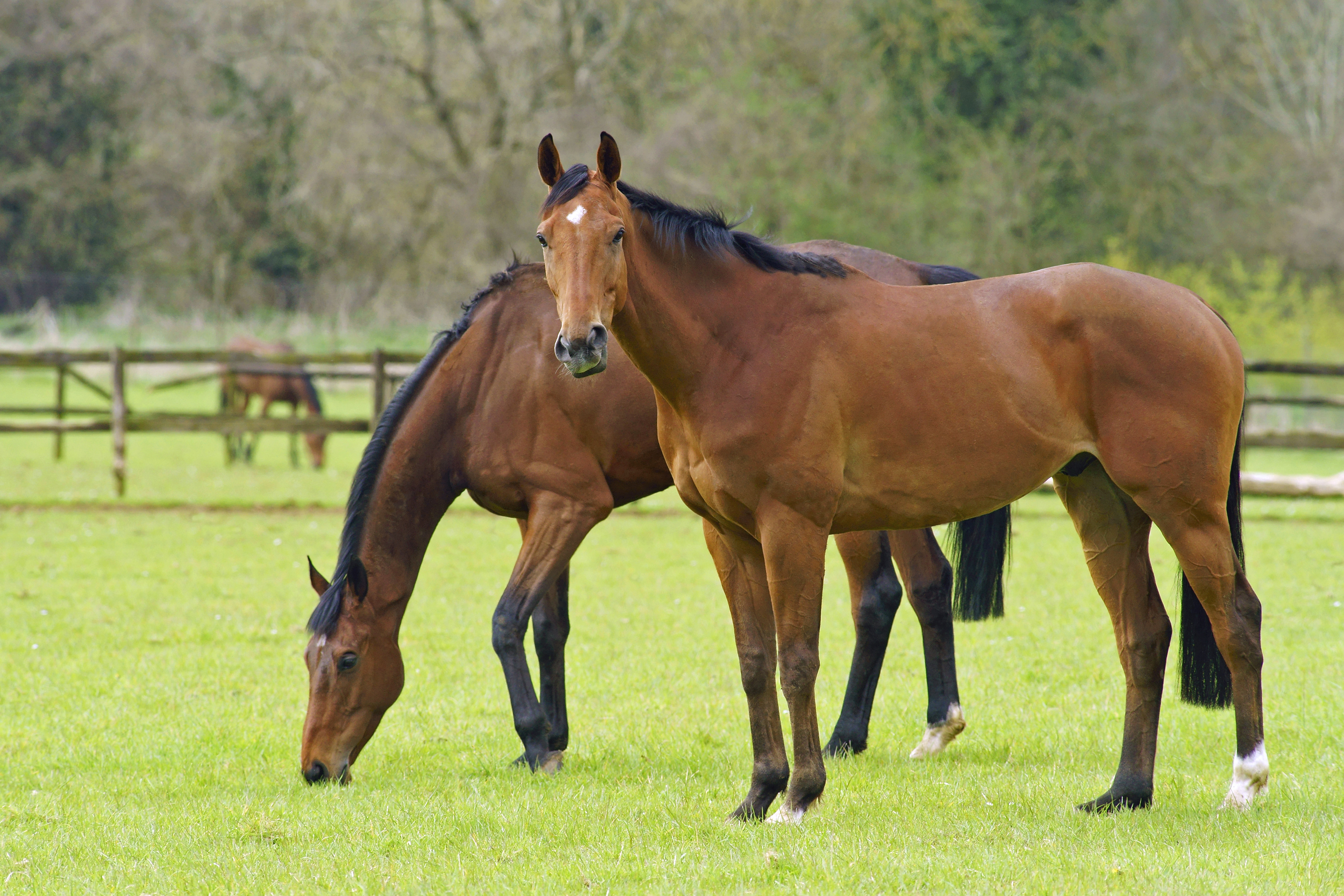
Effective ways to stop wood chewing
Keep an eye on young foals
The habit of chewing and gnawing can form when horses are just several months old. One of the best ways to prevent this habit from forming in the first place is to ensure that the young foals are well taken care of. A few simple things such as regular social interactions with other horses and foals, spending more time on pasture and a nutritional diet can help.
Have a good feeding routine
Horses love routines. While some horses may not be affected by an inconsistent feeding schedule, other horses may find it frustrating and annoying. Having a strict feeding schedule will stop your horses from fretting all day and help prevent them from chewing on different parts of your stables.
If the chewing habit already exists, you might want to try hay bag feeders, they encourage slow feeding and are a great way to distract your horses from chewing and gnawing when stabled. Ensure that the slow feeders are as close to the ground as possible as this is their natural grazing position. If your horse is a chewer, they may decide to chew the feeder itself. We recommend using a feeder that is made out of non-toxic materials and untreated wood.
Find them entertainment
Horses usually gnaw due to boredom; one of the most effective ways to stop this is to keep them entertained with safe horse toys. From hanging carrot feeders, treat dispensers, and hay balls, there are many kinds of horse toys available to keep them happy and entertained. You could install a mirror in their stable; studies have shown this provides a form of companionship for your horses that can help them feel more relaxed and happier.
Anti-chewing strips
Anti-chew strips or bars can be applied to stable doors, gates, fencing, and more. If horse toys or any of the other steps are ineffective, installing these will help protect your timber building.
We off an anti cribbing pack on our stable ranges, including full height kickboards with the top door lined. The top-door anti-bite strips include steel lining to doorstop, top door opening, and the top door’s leading edge. Bottom door anti-bite strip extends 450mm to the front.
Avoid isolating them
Horses are social animals; lack of interactions and stimulation may result in boredom and seeking for something to do- which unfortunately can be chewing the first thing they see. Ensuring that they are kept alongside other horses in the stables or allowing them to interact with one another can help alleviate boredom.
If your horse is unwell, unable to go out or be kept with other horses, you can keep them company by regularly visiting them in the stables, taking them riding, and establishing a good grooming routine.
Horse’s diet
One of the first things you should do when you spot signs of gnawing and chewing is to talk to your veterinarian and see if their diet needs adjusting. There has been some evidence that shows that a reduced amount of grain in a horse’s diet can lessen chewing and cribbing, so seeking professional advice and determining a good diet highly essential.
Keep them outdoors
When horses are kept indoors for a long time, they can become bored and frustrated due to limited entertainment and activities. Allowing your horses to stay outdoors means they can graze naturally and perhaps find other stimuli.
In conclusion
Horses chewing and gnawing on wood and stable parts can be quite bothersome for owners due to damages caused to the stables structure and the negative impact the habit can have on a horse’s health.
The good news here is that you can tackle it immediately if you determine the cause behind such behaviour. If horses are given plenty of things to keep them occupied, are socialised well, have a good diet, and overall, well looked after, you may find that the chewing is dramatically reduced or even stop altogether.
Our team here at Jon William Stables has been delivering high-quality equestrian building for more than 50 years. If you are on the lookout for a well built and durable horse stable with features such as anti-bite strips and talk bars, give us a call on 01380 850 965 or email our team at sales@j-w-s.co.uk now!
